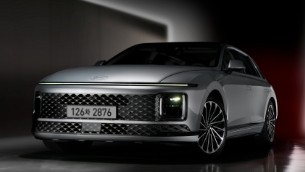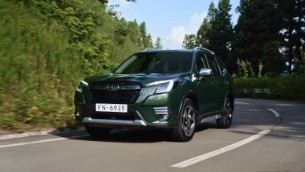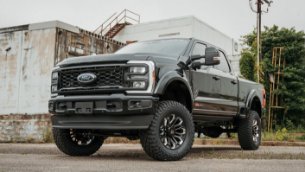The winning formula of the BMW 5 Series
The winning formula of the BMW 5 Series
The BMW 5 Series is one of the German brand's strongest and longest running sales successes, with numerous models sold over several decades to both the private and the fleet markets. At the top of the 5 Series tree sits the mighty M5, but there is plenty to enjoy in the 5 Series range all the way up to their fast and furious M5 halo car, with particular focus these days on powerful yet efficient turbo diesel powered models designed to attract company car users. And attract they do, like these 5 Series cars from Listers.
In the more recent years of BMW sales, the firm has rightly concentrated to a large part on designing, developing and building 5 Series models that they can proactively sell to the fleet market. The fleet market for cars is critical to any mass market manufacturer as when economic times are tough and private consumers are keeping their cash tucked away in the banks, it's fleet sales that can help keep a company nice and buoyant. Sure, even fleet sales will suffer when the economy is struggling, but much less so than private sales. So, the big manufacturers need a good range of fleet satisfying models and BMW's 5 Series is one model that has seriously satisfied fleet drivers and fleet managers over the years.
The fleet manager's budget and the CO2 emissions of their potential fleet cars – the higher the emissions the higher that tax demand will be – will determine which cars the staff end up driving, but thanks to BMW's engineering prowess, budgets can now stretch further. Even a relatively big car like the 5 Series can be enjoyed by more fleet drivers because the manufacturer has worked very hard in recent years on driving down the emissions of their cars; big and small.
The 5 Series model, the 520d, is a good example - it's a big car, with a small appetite for fuel. Up until just a few years ago, a big car like the 5 Series would've needed a fairly large and fairly thirsty engine to haul it along, and that would make it a high tax polluter. But, with BMW's recent work on smaller, high output engines, like their now famous 2-litre turbo diesel motors, big cars can now be successfully and enjoyably powered by these smaller, lower emitting engines. And that's great for fleet drivers who can now enjoy a large and comfortable car like the 5 Series, without having to part with a similarly large, but far less comfortable, company car tax payment every month.
This is one of the main reasons for the strength and success of BMW 5 Series sales; frugal yet powerful diesel engines with lower emissions taxation, but still fast enough for fun when the working day is done. Couple these modern, tax-friendly engines to a sublime rear-wheel drive chassis, fast and direct steering and comfortable yet sporty feeling steering, and you're starting to get a pretty impressive recipe for sales success. All the 5 Series needs now is a brand badge to be proud of, a large and comfortable and well specified interior space, and some of the most understatedly stunning styling of any executive cruiser on the market today. With all of this, it's soon pretty obvious as to why the BMW 5 Series continues to sell and sell, year after year.










